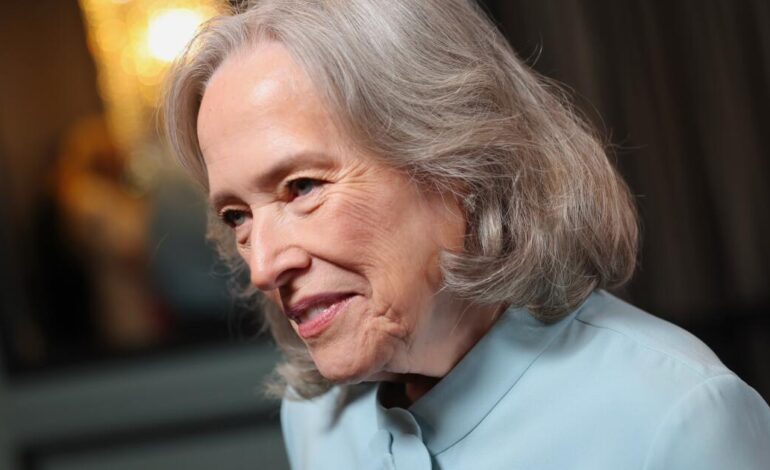Cancer Survivor Advocates for Lymphedema Awareness and Care

The journey of surviving cancer does not always conclude with the end of treatment. For many, like Academy Award-winning actress Kathy Bates, the aftermath can bring new challenges, such as living with lymphedema, a chronic condition that affects millions. Bates, a two-time cancer survivor, is now using her experience to advocate for greater awareness and understanding of this often-overlooked disease.
Lymphedema occurs when the lymphatic system, crucial for immune function and fluid balance, is damaged, often as a result of cancer treatment. According to estimates, more than 10 million Americans currently live with lymphedema. This number surpasses those diagnosed with multiple sclerosis, muscular dystrophy, ALS, Parkinson’s disease, and AIDS combined. For breast cancer patients specifically, the risk is significant, with up to 20% likely to develop lymphedema after surgery or radiation.
Bates emphasizes that many individuals suffering from lymphedema are often left in silence, their struggles hidden behind the broader narrative of cancer survival. “Behind every pink ribbon this October, there are millions silently struggling with swelling, pain, and disability,” she stated, highlighting the desperate need for increased awareness.
Understanding Lymphedema and Its Impact
The condition presents itself when lymph fluid accumulates, leading to swelling and discomfort. Bates, who underwent surgery that involved the removal of 19 lymph nodes from her left armpit and three from her right, knows this all too well. Despite her successful cancer treatment, the cost was a lifelong battle with lymphedema, a disease for which there are currently no approved drug therapies or cures.
Bates notes that one of the significant hurdles in addressing lymphedema is the lack of education surrounding the lymphatic system within medical training. A report indicated that U.S. medical schools devote less than 30 minutes to this essential system over four years of education. This gap has left many healthcare providers ill-equipped to recognize and manage lymphedema effectively.
In 2019, Bates took her advocacy to Capitol Hill, urging lawmakers to allocate funding for research into lymphedema. This effort contributed to the establishment of the first-ever National Commission on Lymphatic Diseases, aimed at enhancing understanding and improving care for those affected.
Empowering Patients to Take Action
Bates stresses the importance of proactive communication between patients and healthcare providers. She encourages individuals to engage in candid discussions about their risk factors, including the type of surgery, the number of lymph nodes removed, and personal health metrics such as body mass index. Understanding these aspects can empower patients to take control of their health and explore preventive measures.
“Ask your doctor about your personal risk,” Bates advises. “The more you understand, the more empowered you are.” This knowledge may lead to strategies that include bioimpedance measurements to monitor lymphatic flow, alongside physical therapy, gentle exercises, and a balanced diet.
Moreover, Bates urges patients to view prevention as an integral part of treatment. By incorporating gentle exercise and lifestyle changes, individuals can significantly reduce their risk of developing lymphedema. She believes that discussions surrounding lymph node removal should be approached with clarity, as the implications of this decision can have lasting effects on one’s health.
Ignoring early signs of lymphedema, such as feelings of heaviness, tightness, or swelling, can lead to more severe complications. “Too many patients are told to brush these symptoms aside,” Bates warns. Early intervention is critical and can make a substantial difference in managing the condition.
Finally, Bates emphasizes the necessity of accessing specialized care. Lymphedema specialists and certified therapists provide essential support, screening, and personalized strategies for management. “The right specialist can be a lifeline,” she states.
As October approaches and awareness campaigns gain momentum, Bates hopes that the public will remember those fighting an invisible battle with lymphedema. She calls for greater understanding, more informed conversations, and systemic changes to ensure that the needs of lymphedema patients are met.
By raising awareness and advocating for change, Bates aims to shed light on the silent struggles faced by many cancer survivors and inspire a collective effort towards better education and treatment options for lymphedema.






